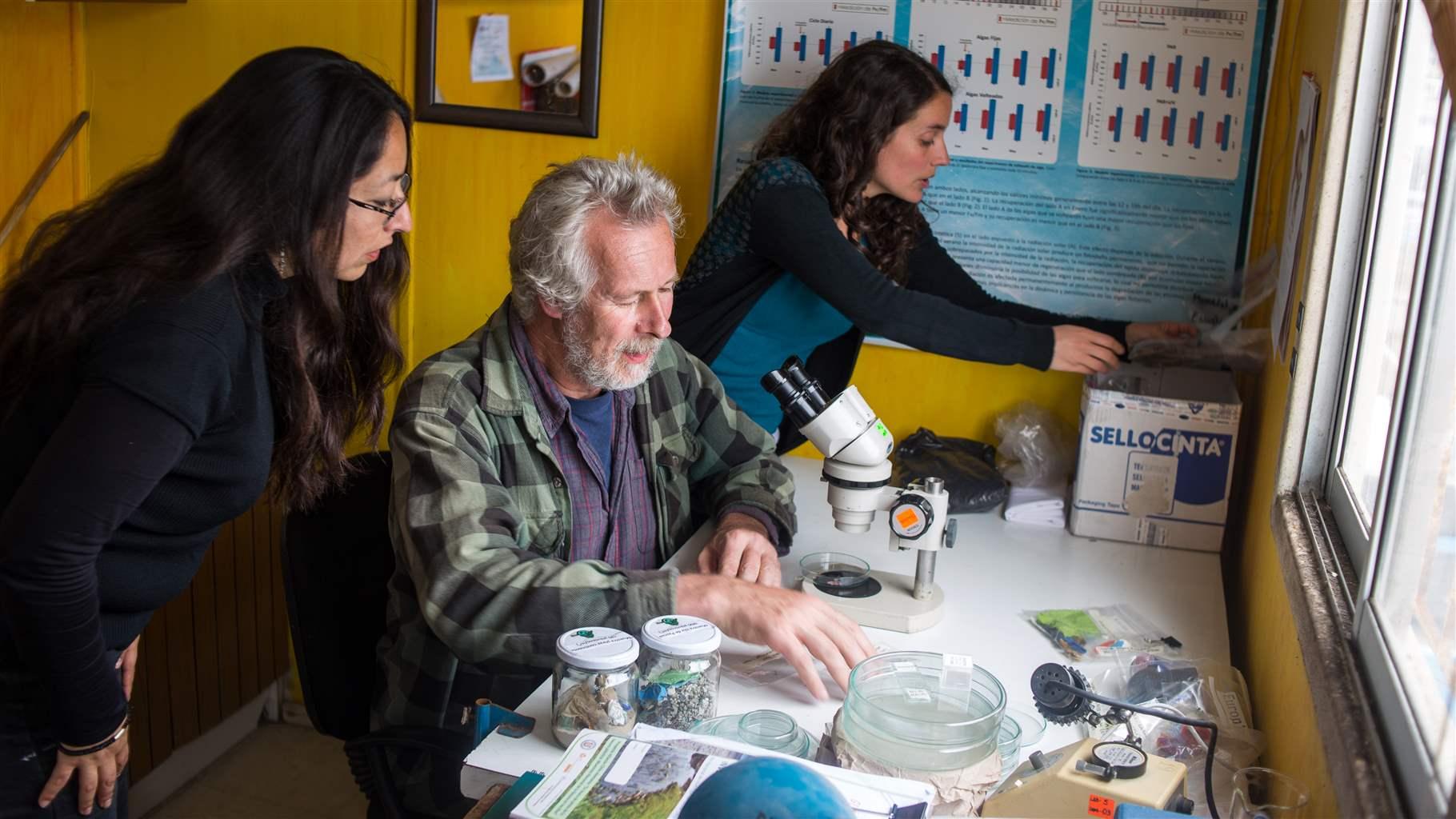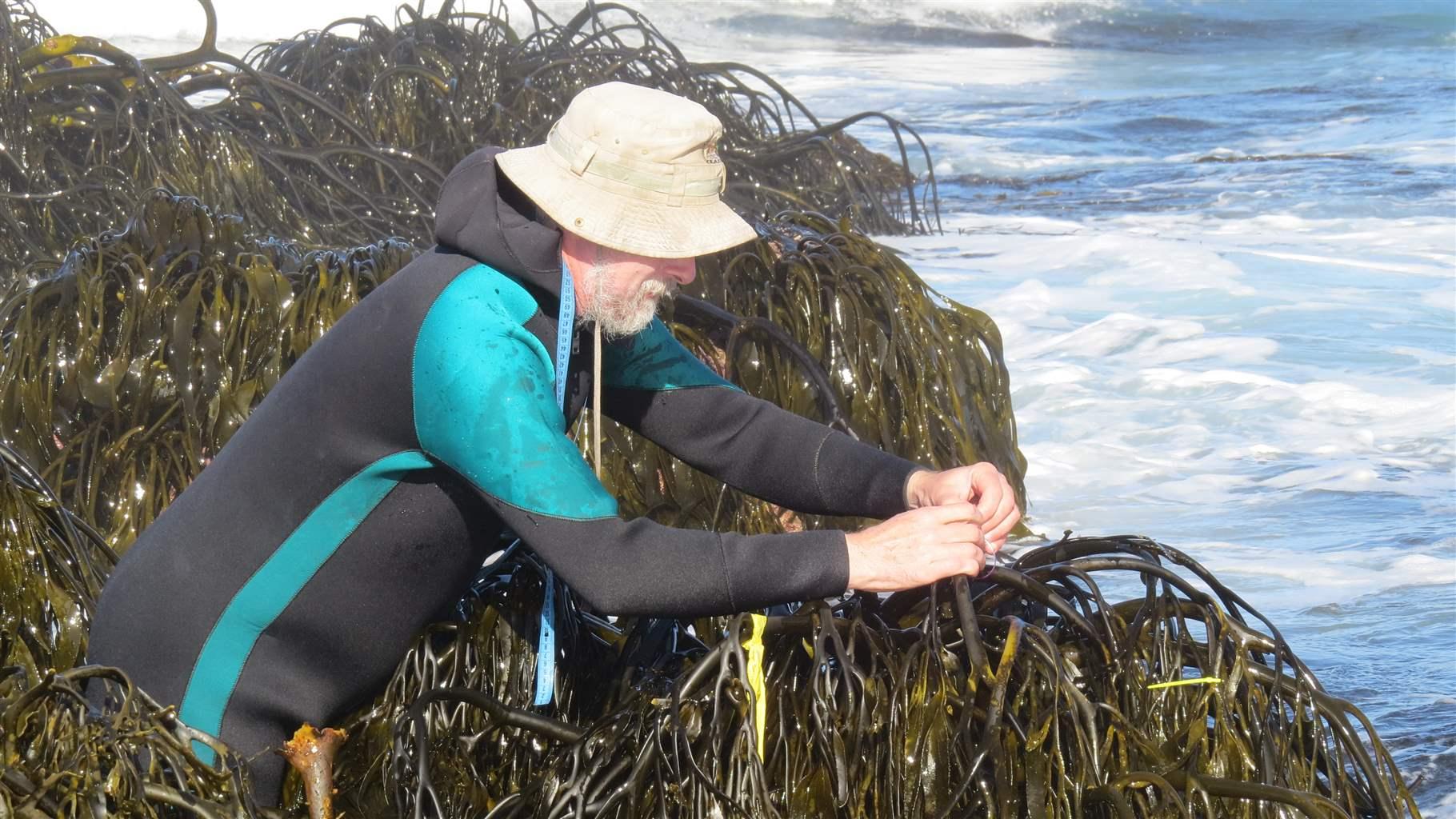Scientist Tackles Plastic Waste Along Latin America’s Pacific Shores
Pew marine fellow works with students to collect data on marine debris

Marine plastic waste is a growing global threat, with plastics accounting for as much as 60 to 80 percent of litter in oceans and waterways. Plastic debris can remain in the water for thousands of years, harm wildlife through ingestion and entanglement, and transport invasive species that can damage marine ecosystems and habitats.
Martin Thiel, a 2018 Pew marine fellow and founder of the Chile-based citizen science program Científicos de la Basura (Litter Scientists), wants to raise public awareness of this problem in Latin America by gathering data on plastic waste, establishing mitigation strategies, and fostering environmental consciousness among his students. Thiel discussed his work with The Pew Charitable Trusts.
This interview has been edited for clarity and length.
Q: Tell us more about your program.
A: From Mexico to Chile, Científicos de la Basura works with schools in 11 countries that border the Pacific Ocean. Working with students, teachers, and regional partners, my team’s goal is to expand scientific knowledge of the sources and impacts of marine plastic debris in Latin America.
First and foremost, we want to know where the marine litter is coming from. This is the most important factor to design effective strategies to alleviate plastic waste in the ocean, along the coast, and across inland waterways. Second, we need to know where plastic waste is most severe and how it travels with the currents, and identify other lasting impacts. Right now, we are studying biotic interactions, or the effect that a pair of organisms have on each other. We’re observing that some organisms are ingesting plastic and some invasive species are growing on, and likely being transported by, marine litter.
Third, we weigh public attitudes and gauge how far people will go to change their daily habits. To help gather this information, I work with schoolchildren in Chile to conduct community surveys on what the public knows about marine litter, how they feel about the issue, and how willing they are to address the problem. We share these findings with the public and decision-makers and provide recommendations on how communities can implement conservation tactics.
Q: What are some of your research breakthroughs and successes?
A: Over the past 10 years, our research confirmed that 99 percent of litter found on Chilean beaches is from Chile. This is significant because it tells us that in order to address Chile’s litter dilemma, we have to solve the problem ourselves, so to speak. This is not the case in many other areas of the world. For example, China and South Korea receive a significant amount of litter from elsewhere. From what I have seen, in other Latin American countries, like Peru and Ecuador, the composition of waste, litter sources, and movement of marine debris are very similar to Chile’s, so this plastic waste issue must be addressed internally by each country.
Our program has had success in Chile, for example, by providing scientific knowledge to inform a national ban on single-use plastic bags, enacted in August 2018. Our role now is to continually promote awareness—at the consumer, corporate, and legislative levels—and to put pressure on sectors to enforce this law. We also use social media to encourage positive change, including the use of reusable shopping bags. While we certainly can’t tackle marine plastic waste alone, we have seen progress and will continue to work with partners at all levels to inform enforcement and improve environmental practices.
Q: What do you hope to accomplish through your work?
A: My dream is for Chilean beaches to be the cleanest in the world, and I think this is entirely possible. However, we first need to see a shift in priorities. Over the past 40 years, plastics producers have made their products cheaper. This has contributed to a throwaway, single-use culture where these products may cost less than a reusable item. However, the environment and our oceans are paying the price.
One hurdle we need to overcome globally is a lack of plastics recycling. Currently, there is a lot of downcycling—when the recycled material is of lower quality and functionality than the original material—and burning of garbage to reduce litter volume. There is no true recycling of plastic, as seen with metal or glass, which can be melted down and reused endlessly. So success for me would mean a significant increase in meaningful reuse and recycling, ultimately keeping beaches and waterways free of plastic contamination.
Q: What’s the next step for your program?
A: Building off our experience in Chile, my team is working to expand our citizen science program to other Latin American countries, including Peru, Ecuador, and Colombia. In December 2019, we held an international conference in Coquimbo, Chile, to bring together students and teachers and brainstorm conservation practices they can implement in their schools and communities. This was a great success, and we hope to host similar events in the future.
In 2020, our network of students and environmental organizations hopes to conduct an international sampling of beach litter to identify hotspots, composition of litter, and its main sources. Many entities have agreed to participate, including the Marine Institute of Peru and the National Fisheries Institute in Ecuador. Through this collaborative investigation, we also plan to establish an international alliance for partners to share best practices for reducing plastic waste.
Q: How has the Pew marine fellowship helped you do this work?
A: The fellowship has played a critical role in helping my team gather data, educate others on environmental responsibility, and expand this citizen science model beyond Chile. We hope to replicate this success and communicate more effectively with schools, environmental and educational ministries, and diverse institutions across Latin America for the sake of our oceans.
/9x16_m.jpg?h=1820&w=1024&la=en&hash=80215333A74ECA3A7D92CE73341535DA)







